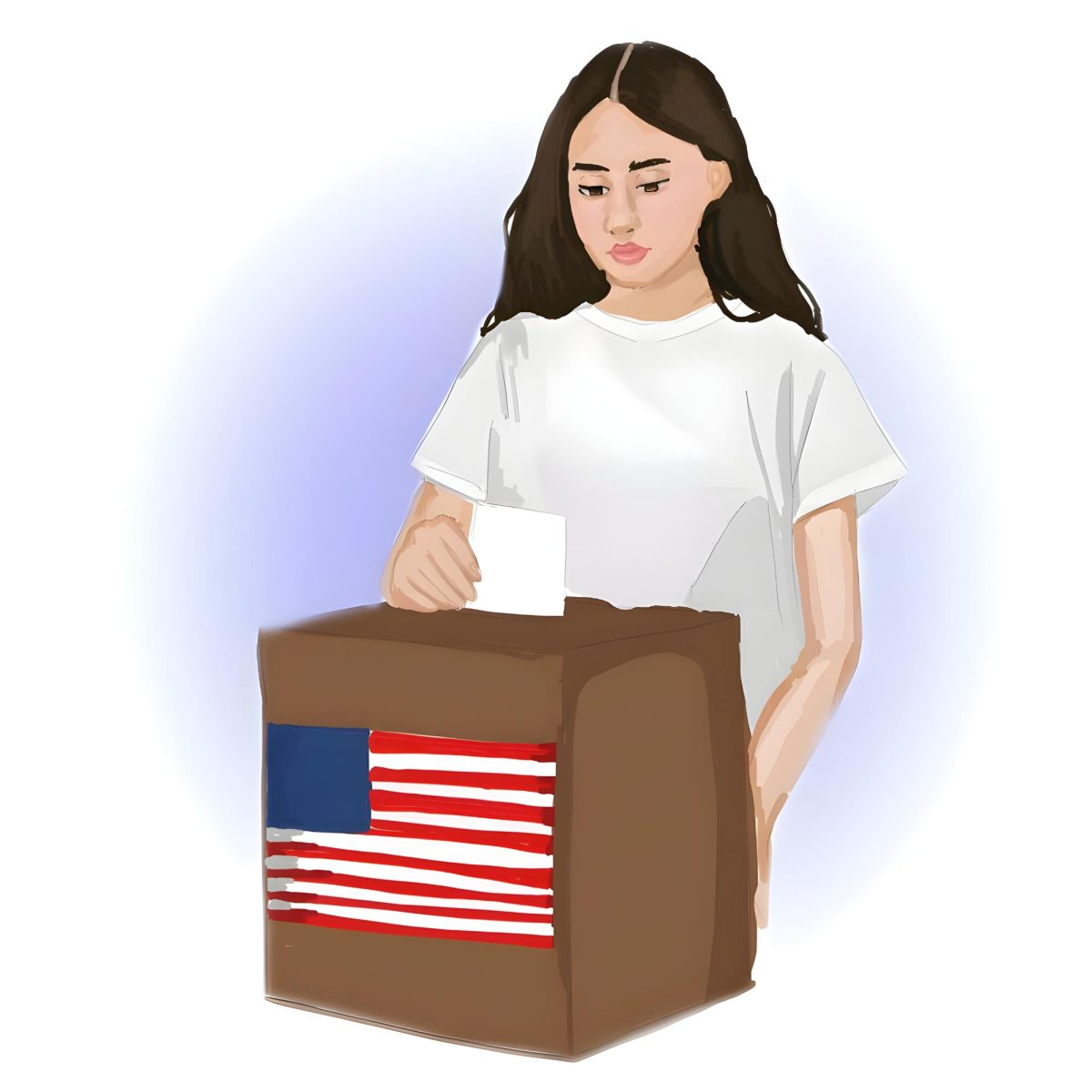Voting is widely regarded as one of the most important civic duties in the United States. From the Voting Rights Act of 1965 to the passage of the 19th amendment, suffrage has been fought for since the inception of the United States democracy. Despite voting being the cornerstone of the American government, many eligible voters aren’t sure how to register to vote. A Pew Research Center survey indicated that approximately 40% of eligible voters weren’t certain about their state’s registration deadlines or rules, highlighting a key fault in public awareness surrounding voter registration.
A common misconception is that registering to vote requires extensive paperwork, detailed personal information and takes weeks. Ryan Werenka, Troy High School Advanced Placement U.S. Government teacher, says otherwise: “It [registering to vote] takes about 90 seconds.” On Michigan’s voter registration form, there are only three identification information components needed:

- Name
- Address
- Michigan driver’s license number OR last four digits of your Social Security Number
Kaeshav Krishna, Troy High School Student and Model United Nations President, voices that, “It would be nice if there was a very public and up-front way for us to register to vote, especially for us [students] who turn 18 or are 18 right now.”
How exactly do you register to vote? Here are five simple steps to register in Michigan:
- Ensure that you’re eligible to vote in Michigan. To be eligible, you must be a U.S. Citizen, a resident of Michigan, and 18 years of age by November 5th, 2024.
- Choose how to register:
- In Person: You can register to vote in person at any Secretary of State branch, local county, or city clerk’s office. Bring a driver’s license or state ID.
- Online: Visit the Michigan Secretary of State website and use the online voter registration system. Fill out the required information, including your driver’s license or state ID number, and follow the prompts to complete the registration process.
- Mail: Download the voter registration form from the Michigan Secretary of State website, complete the form and mail it to your local county clerk’s office. Provide a copy of acceptable identification.
- Be sure that you register within 15 days of Election Day.
- After registering, you will receive a voter registration card which confirms that you are a registered voter in Michigan.
- Vote! On Election Day, navigate to your assigned polling location through the Secretary of State website and cast your vote.
Your vote makes a difference, especially as a young person. Millions of young voters cast a vote each election, and are therefore an important demographic that significantly affects the nation’s political proceedings. Young voters in Michigan in particular have been voting at higher rates. Michigan Secretary of State Jocelyn Benson has noted this hike, “A strong democracy requires informed and engaged citizens, and Michigan is leading the way in ensuring our youngest voters are active participants in determining our future.”
However, Michigan is not the only state to witness the effects of increased youth voter turnout. The recent Ohio election on Nov. 7, 2023 led to unexpected results. As a traditionally Republican state, Ohio had banned abortion as well as recreational marijuana use in 2022. After this past election, however, Ohio voted to enshrine the right to abortion in their constitution, as well as legalized marijuana for people 21 and older. At the same token, youth voter turnout among Ohioans was markedly higher, and the majority of young voters were in support for both issues.
According to an ABC News exit poll, “Young voters were particularly apt to back both measures: Seventy-seven percent of those ages 18-29 were for the abortion referendum and 84% were for legalizing marijuana.”

The results of the Ohio election are a testament to the impact of young voters and how they inspire legislative action shaping their communities. It is equally vital for Troy High School’s eligible voters to participate in elections to ensure their voices surrounding local, state and national legislation are heard.
Through voting, your stances on policies will be represented by your corresponding legislators and directly impact healthcare, education, justice and several other core tenements of society. Political participation of young voters shapes the future of society, and just a single vote from this demographic ensures that the diverse concerns and aspirations of the younger generation are considered in decision-making processes.




